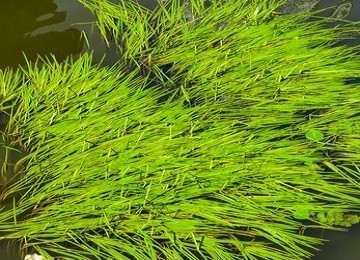Submerged Plant Tissue Culture
As primary producers, submerged plants are an essential basis for the food chain of water bodies, and submerged plants also provide refuge and spawning grounds for animals by effectively increasing spatial ecological niches.

In addition, submerged plants also play an essential role in the physicochemical environment of water bodies, such as increasing dissolved oxygen, absorbing nutrients such as nitrogen and phosphorus, reducing sediment disturbance by wind and waves, and inhibiting the growth of water-washed algae.
Therefore, submerged plants are significant members of freshwater ecosystems, especially shallow lake ecosystems, and perform a key role in maintaining the structure and function of water ecosystems and biodiversity. However, with the increasing degree and extent of eutrophication in water bodies, submerged plant communities are generally degraded or disappeared, which subsequently results in the general degradation or loss of water ecosystem functions.
Tissue culture service
Submerged plants are propagated in various ways, but a collection from other seed sources not only destroys the ecological environment of the seed source but also has a low survival rate of plants after planting because seedlings are generally collected and transported over long distances. In contrast, Lifeasible can rapidly propagate submerged plants using plant tissue culture, which is a completely feasible method for producing submerged plant seedlings.
- Culture system characteristics
The asexual reproduction ability of submerged plants is very strong in the regeneration of broken branches, and their stem segments, shoot segments and rhizomes have the potential for rapid expansion. Therefore, Lifeasible often uses non-propagules such as stem segments or single nodes as explants for in vitro rapid propagation without going through the healing tissue process.
For proliferation and rooting culture, we usually use liquid culture, which is beneficial for seedling growth and rooting. Depending on the actual situation, we may use the culture method of first using the solid medium with sucrose, cultivating until rooting and then transferring to a liquid medium without sucrose.
You want to sign a confidentiality agreement.
You have a specific plant species for your experimental needs.
You have a reliable and relevant cooperation project to discuss.
You are very interested in our project or have any questions.
You need an updated and detailed quotation.
For research or industrial use.



